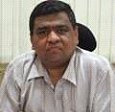ABOUT THE COURSE
INTENDED AUDIENCE
Students of BE/ME/MSc/PhD streams
INDUSTRY SUPPORT – LIST OF COMPANIES/INDUSTRY THAT WILL RECOGNIZE/VALUE THIS ONLINE COURSE
Smith & Nephew/Adler Mediequip Pvt. Ltd., Pune, CIPET, Chennai

Dr. Bikramjit Basu is currently a full Professor at the Materials Research Center and holds Associate Faculty position at Center for Biosystems Science and Engineering, Indian Institute of Science (IISc), Bangalore. He is currently an Adjunct faculty at Indian Institute of Technology Kanpur (IITK). After his undergraduate and postgraduate degree in Metallurgical Engineering, he earned his PhD in Ceramics at Katholieke Universiteit Leuven, Belgium in March, 2001. After a brief post-doctoral stint at University of California, Santa Barbara; he joined IITK in November 2001 as Assistant Professor and was promoted to full Professor at IITK in March, 2012. Prof. Basu’s international standing and impact on the field are illustrated by his prolific publication record (more than 225 peer-reviewed journal articles, including 30 papers in journals with high impact factor (>4.0), more than 20 invited review papers/book chapters) and citation record (total citation: ~ 5,300, H-index: 41). He currently serves on editorial board of 12 SCI journals. Dr. Basu has served as a research adviser to 16 PhD students, 20 Masters students and mentored 10 young academic colleagues.
Prof. Basu’s contributions in Engineering Science have been widely recognised. He is one of the youngest recipients from the Metallurgy/Materials Science community as well as the only Biomaterial Scientist so far to receive India’s most coveted science award, Shanti Swarup Bhatnagar award (2013). He is an elected Fellow of the Indian National Academy of Engineering (2015), West Bengal Academy of Science and Technology (2014), Society for Biomaterials and Artificial Organs (2014) and National Academy of Sciences, India (2013). In 2015, he received National Bioscience award from the Government of India for unique contributions in the frontier areas of biological sciences. He remains the only Indian from India to receive the prestigious ‘Coble Award for Young Scholars’ (2008) from the American Ceramic Society.Week 1: Introduction to Biomaterials and Biocompatibility
M1-Introduction, M2-Biomaterial, M3-Biocompatibility, M4- Host response
Week 2: Defining tissue engineering scaffolds and implants
M5-Tissue Eng, M6-Scaffold, M14-Bone structure, M15-Bone properties, M16-Implant-I, M17-Implant-II
Week 3: Structure and Properties of Proteins and Cells
M7-Proteins, M8-Cell structure, M13-Bacteria structure, M27-Antibacterial assay
Week 4: Stem cells and Cell fate processes
M11-Cell fate processes, M12-Cell division, M23-Cell differentiation, M24-Stem cells
Week 5: Cell-material Interaction (in vitro and in vivo) and Clinical trials
M18-Osseointegration, M19-in vivo testing, M9-Cell-material interaction, M10-Cell-signalling, M21-in vitro testing, M22-Cytotoxicity assays, M25-Clinical trials I, M26-Clinical trials II
Week 6: Manufacturing of Biomaterials (metals, ceramics and polymers)
M28-Metal manufacturing, M29-Ceramics manufacturing, M30- Polymers manufacturing, M31-Additive manufacturing
Week 7: HA-based composites
M32-HA-Ti-Toughness, Cell functionality, M33-HA-CaTiO3 development, M34-HA-BaTiO3 Functional Prop, M35-HA-Ag antimicrob & cell viability, M36-HA-ZnO, Cell fate & antimicrobial
Week 8: Glass ceramics for orthopedic and dental applications, acetabular socket and femoral head, prototype development
M37-Dental ceramics: processing, M38-Sr-based glass Ceramics, M39-Acetabular socket (Compression mold), M40-ZTA femoral ball head fabrication
It will be e-verifiable at nptel.ac.in/noc.